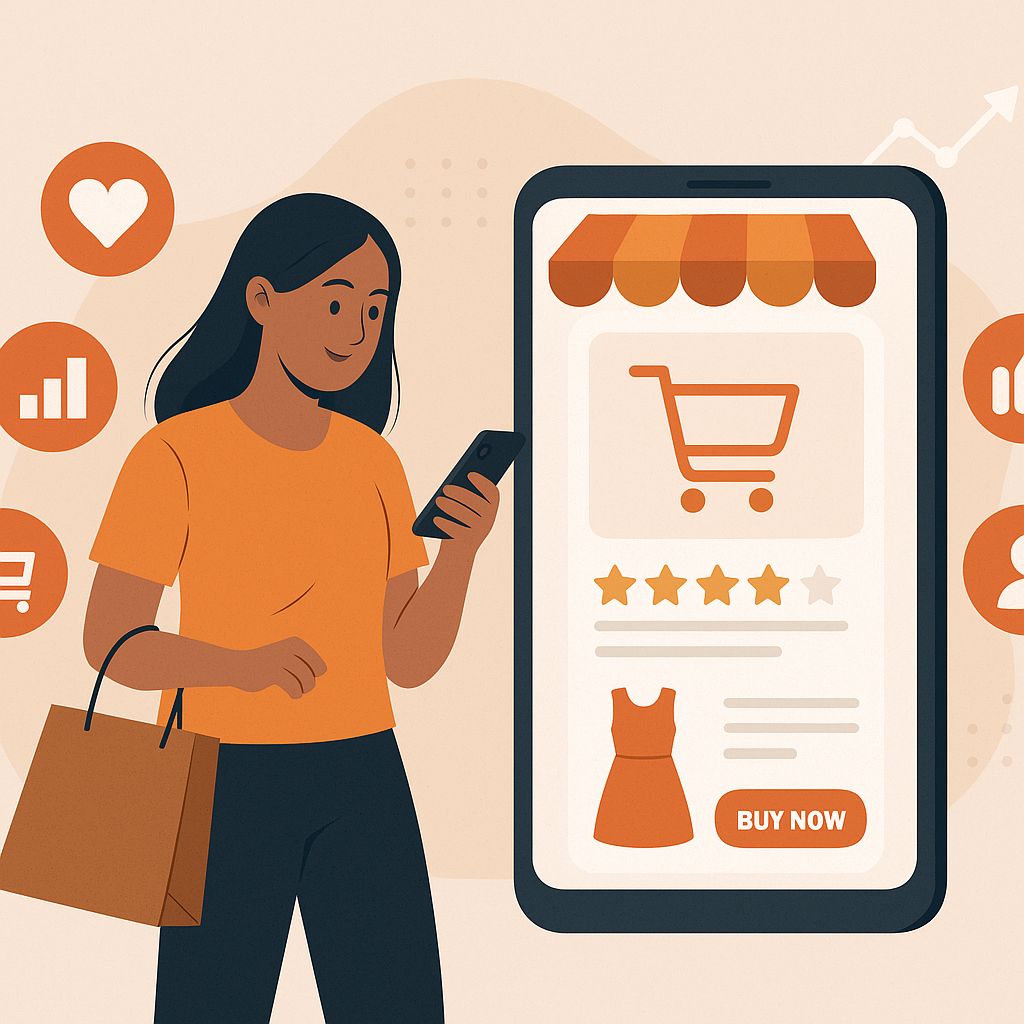
Consumer Behavior in 2025: How Shopping Habits Are Changing
Introduction
The retail and consumer landscape is undergoing a massive transformation as we enter deeper into 2025. Accelerated by technological innovation, shifting values, and global events, shopping behaviors have evolved significantly. Today’s consumers are not only more connected than ever, but also more informed, value-driven, and selective in their purchasing decisions. For FMCG brands, retailers, and marketers, understanding these new behaviors is not just beneficial—it’s essential.
In this article, we explore the most significant changes in consumer behavior in 2025 and what brands must do to adapt and thrive.
1. Digital-First Is the Norm
Online shopping is no longer a convenience—it’s the standard. In 2025, over 80% of consumers begin their shopping journey online, even if they complete it in-store. With the rise of mobile commerce, voice-activated shopping, and AI-driven recommendations, consumers expect seamless digital experiences across all channels.
Brands must ensure:
- A strong presence on e-commerce platforms.
- Mobile-optimized websites and apps.
- Integration with digital wallets and fast checkout options.
In short, if a brand’s digital footprint is weak, it risks invisibility.
2. Personalization Drives Engagement
Today’s consumers expect brands to know them. Thanks to AI and data analytics, personalization has become more sophisticated and crucial to success.
Key trends include:
- Tailored product recommendations based on purchase and browsing history.
- Dynamic pricing and promotions targeted at individual preferences.
- Personalized content in marketing emails and social media campaigns.
FMCG brands that use AI to deliver hyper-relevant experiences are seeing better conversion rates and stronger customer loyalty.
3. Value-Driven Shopping Decisions
In 2025, consumers are not just buying products—they’re supporting missions. Ethical considerations such as sustainability, inclusivity, and social responsibility are influencing purchasing choices.
A recent survey found:
- 72% of consumers are more likely to buy from brands that align with their personal values.
- 64% are willing to pay more for eco-friendly products.
Brands must be transparent and authentic in their messaging, and ensure their practices reflect the values they promote.
4. Subscription and Sampling Models Are Growing
Convenience is key, and subscription-based models are booming. In particular, product sampling through curated subscription boxes has gained popularity as a way to try new items before committing to full purchases.
Why this works:
- Reduces decision fatigue for overwhelmed consumers.
- Builds brand familiarity and trust.
- Offers valuable feedback for brands via post-sample surveys or AI-driven interviews.
Samplify, for instance, leverages AI to deliver personalized product experiences directly to consumers—transforming traditional sampling into a high-impact marketing strategy.
5. Social Media Is a Commerce Hub
Social platforms like Instagram, TikTok, and Pinterest are no longer just for inspiration—they are direct shopping channels. Social commerce has become a mainstream behavior, especially among Gen Z and Millennials.
Key tactics include:
- Influencer partnerships and affiliate marketing.
- Shoppable posts and livestream commerce.
- User-generated content to build trust and credibility.
For brands, having a dynamic and engaging social media strategy is now vital for driving both awareness and conversion.
6. Omnichannel Expectations Are High
In 2025, consumers expect brands to be wherever they are—without interruption in service or experience. Whether shopping online, via mobile, or in-store, they want consistency and convenience.
Brands that succeed in this space:
- Offer buy-online-pick-up-in-store (BOPIS) options.
- Have unified loyalty programs across channels.
- Use customer data to provide contextual support and personalized offers.
Omnichannel excellence is now a baseline expectation.
7. Reviews and Feedback Matter More Than Ever
With growing skepticism towards traditional advertising, peer reviews and real customer feedback are trusted sources of truth.
In fact:
- 9 out of 10 consumers check reviews before making a purchase.
- Many now rely on short-form video testimonials and UGC over branded content.
As part of product sampling strategies, collecting and showcasing authentic consumer reviews can significantly influence purchase decisions.
Conclusion
The year 2025 marks a pivotal moment in the evolution of consumer behavior. Shopping is now digital-first, value-driven, and personalized, with a strong reliance on trust, convenience, and relevance. For brands, particularly in the FMCG space, adapting to these shifts isn’t optional—it’s imperative.
Success will come to those who embrace data, invest in customer-centric strategies, and remain agile in a fast-moving, customer-led world. By staying informed and responsive, brands can meet the needs of the modern shopper and secure long-term loyalty in this new consumer era.